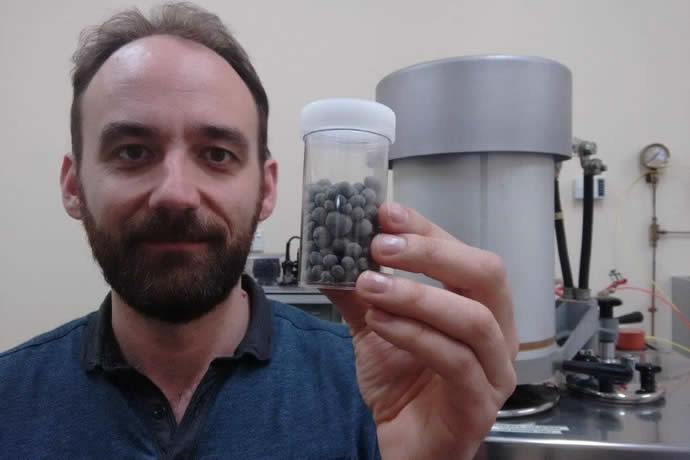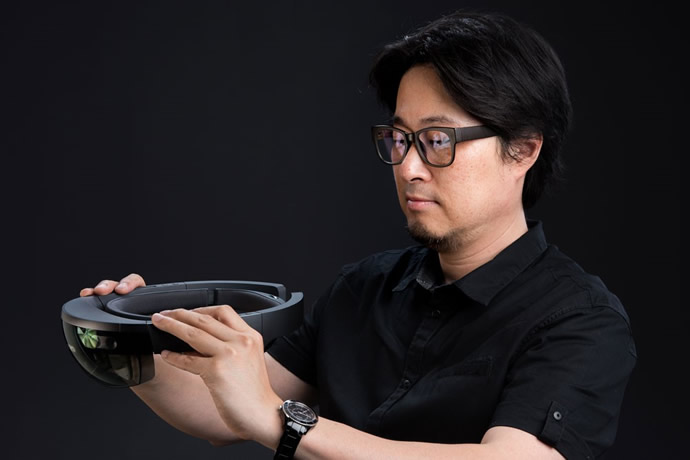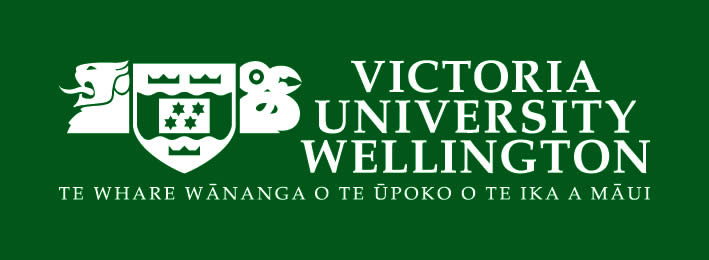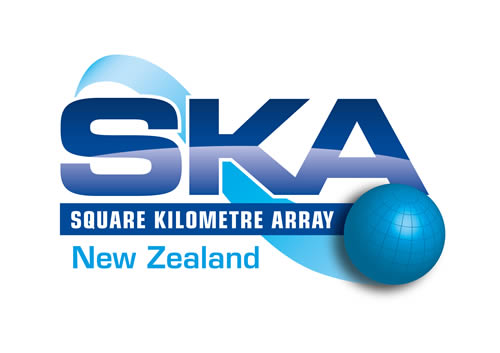2018 Awards Winners
The KiwiNet Awards celebrate heroes in research commercialisation — those individuals and organisations whose best practice approach is changing the innovation landscape in New Zealand. We congratulate the 2018 winners!
BNZ Supreme Award
This award celebrates the supreme entry which demonstrates overall excellence in all core areas of research commercialisation.
Dr Andrew Kralicek – Plant & Food Research
Insect Receptor Sensors: Harnessing insects’ amazing powers of smell to revolutionize commercial sensing
Dr Andrew Kralicek, Team Leader of the Molecular Sensing Team at Plant & Food Research, has spent the last decade working out how to harness insects’ amazing sense of smell to revolutionise the world of electronic sensors. His technological breakthrough led to the development of a proof of principle prototype showing that insect odorant receptors can be used for the detection of miniscule amounts of volatile compounds. Possible commercial applications range from human health, pest and disease detection, food quality and defence technologies.
Over the past three years, Dr Kralicek’s passion has been the commercialisation of his innovative new technology as a platform technology. These efforts, backed by PreSeed accelerator investment, have seen Dr Kralicek engage with potential customers, collaborators, funders and advisers to better understand the commercial opportunities that could be captured by this novel device. Andrew was the first researcher selected for the KiwiNet Emerging Innovator Programme in 2015 for his 'biological electronic nose' sensor technology.
Norman Barry Foundation Breakthrough Innovator Award
This award recognises an upcoming entrepreneurial researcher who is making outstanding contributions to business innovation or is creating innovative businesses in New Zealand through technology licencing, start-up creation or by providing expertise to support business innovation.
Dr Vlatko Materic – Hot Lime Labs
‘Hot Lime’ to help feed the world - increasing greenhouse crop yields with sustainable CO2
Dr Vlatko Materić, Founder and CEO of Hot Lime Labs, has developed technology to sustainably boost glasshouse yields while reducing their carbon footprint.
Dr Materić started development of his 'Hot Lime' technology while in his previous role, as a researcher at Callaghan Innovation. He had long envisioned a technology to produce clean CO2 from the combustion of waste which could change the world by significantly boosting glasshouse vegetable and flower yields while reducing their carbon footprint.
The Hot Lime Labs technology can recover clean CO2 from the burning of waste organic material and then allow this clean and concentrated CO2 to be released into the greenhouse to improve crop yields by around 20%. This enables greenhouse growers to operate at optimal yields, and increase food production while simultaneously cutting environmental harm by using a renewable source of clean CO2.
The technology has the potential to increase grower's revenues by $40-80k per annum per hectare compared to using other sources such as natural gas or liquid CO2. The global market opportunity for the technology is estimated at over $800m per annum and is growing rapidly. In the space of just two short years he is now realising his dream, having foundered a start-up company as a commercialisation vehicle for his discoveries. Hot Lime Labs has already attracted significant private investment and is set to take on the world with eager early adopters lined up for commercial trials.
Baldwins Researcher Entrepreneur Award
This award recognises an entrepreneurial researcher who has made outstanding contributions to business innovation or has created innovative businesses in New Zealand through technology licencing, start-up creation or by providing expertise to support business innovation.
Associate Professor Taehyun Rhee (TJ), Victoria University of Wellington
Taking New Zealand’s virtual reality (VR) and augmented reality (AR) technology to the world.
Associate Professor Taehyun Rhee (TJ) from Victoria University of Wellington is passionate about solving global challenges in Virtual and Augmented reality. His commercial appetite has been honed developing a wide range of innovative products, including 17 years’ industry experience with Samsung. Whilst there, he oversaw a 3D virtual prototyping and visualisation system that resulted in over 200 products. He joined Victoria University in 2012 and has continued to form strong academic and business collaborations.
When TJ first arrived in New Zealand his talents caught the eye of Weta Digital. Seeing an excellent opportunity with the film industry he pioneered the Victoria’s Computer Graphics Programme, which offers students the opportunity to gain unprecedented insights into the inner technologies of the creative industries. Over 10 internship and graduating students now work for Weta Digital, contributing to some of the biggest blockbusting movies we have seen in the past few years.
TJ started Dreamflux, his own company utilising breakthrough technology built at Victoria University, 5 months ago. He has already worked directly for virtual tour project with Wellington International Airport, Singapore Airlines and Wrestler; the experience is the first of its kind anywhere in the world. Recently, DreamFlux technology was accepted to the SIGGRAPH 2018 to showcase their immersive mixed reality technology in the main stage of “Real-time Live” at Vancouver.
To improve the commercialisation of research to solve industry problems TJ was instrumental in establishing Victoria’s new Computational Media Innovation Centre where he is a deputy director and research director. The Centre will incubate potential start-ups and industry pipelines to strengthen New Zealand’s computing and media ecosystem, and develop extensive links with international gaming and anime companies and institutes. The Centre will be based in Victoria’s Faculty of Engineering and was announced as one of the first three recipients of funding from the Government’s $35 million Entrepreneurial Universities initiative.
MinterEllisonRuddWatts Research & Business Partnership Award
This award recognises the deeply embedded working relationship between a research organisation and business that delivers significant commercial value for New Zealand.

An artist’s impression of the SKA at night
AUT and the NZ SKA Alliance
Square Kilometre Array (SKA) Telescope - Exploring the Universe with the world's largest radio telescope
The Square Kilometre Array (SKA) is the World’s largest radio telescope delivering fundamental advances in understanding our Universe. New Zealand SKA Alliance partners, led by AUT, jointly undertake research and design to deliver the unprecedented computing power behind the world’s largest and most sensitive radio telescope.
The SKA is the World’s largest mega-Science project of the next decade. It represents numerous firsts for New Zealand, being the World’s biggest Big Data project, the largest Science project in which New Zealand has ever had substantial lead roles, and the largest New Zealand involvement in an international ICT collaboration. Once the receivers, infrastructure and supercomputing systems have been built scientists in the 10 member countries*, including New Zealand, will have access to the World’s largest and most sensitive radio telescope. With it they will make fundamental advances in our understanding of the Universe over the next 50 years.
The New Zealand SKA Alliance consists of three universities: AUT, University of Auckland, Massey University; and companies including: Catalyst IT, Compucon NZ, and Open Parallel. The organisations jointly undertake research and design for the unprecedented computing required to make the SKA a reality. Established in 2013 and aiming for SKA phase 1 construction 2019-2025 it will be one of the longest and largest academic-industry collaborations in NZ.
*Australia, Canada, China, India, Italy, New Zealand, South Africa, Sweden, The Netherlands and the United Kingdom.
PwC Commercial Impact Award
This award celebrates excellence in research commercialisation delivering outstanding innovation performance and the potential for generating significant economic impact for New Zealand.
Plant & Food Research
Amarasate® Extract – 100% plant-based, world-first weight management extract
calocurb™, the 100% plant-based supplement that helps you manage food cravings is set to take international weight management market by storm
Scientists at Plant & Food Research have developed a 100% plant-based supplement that helps you manage food cravings and is set to take the international weight management market by storm. calocurb™, licensed by Lifestream International has just launched into the US, the world’s largest market for weight management. calocurb™ contains Amarasate® extract, which is the lead ingredient from an MBIE research programme for ‘Foods for Appetite Control’, and is a New Zealand grown hops extract that supports portion control and reduces daily calorie intake. Targeting the Bitter Brake™ mechanism, the bitter extract is released in the duodenum and triggers taste sensors in the gut to release satiety peptides.
Amarasate® extract was found to be the most effective compound (out of more than 900 plants screened) to trigger the Bitter Brake™ – an evolutionary response whereby bitter compounds trigger a ‘stop eating’ signal in the brain. When coupled with patented capsule technology, the Amarasate® extract progressed through clinical trials and demonstrated that bitter compounds support a feeling of fullness or satiety. Plant & Food Research was able to create a Generally Recognized As Safe (GRAS) self-determination dossier showing historical use of the extract in the US with support from PreSeed funding through KiwiNet.
Plant & Food Research then contracted with the world’s leading company for production of capsules to manufacture a trial run of capsules as well as completing US market validation and a provisional patent. Ultimately Plant & Food Research licensed the technology to Lifestream International, a New Zealand private equity owned company who has financed the product launch direct to consumers in the US, bypassing historical retailers, maintaining margin for the commercial partner and developing direct consumer relationships through an online only initial launch. The product was launched in New Zealand in April 2018 and the US in May 2018.















